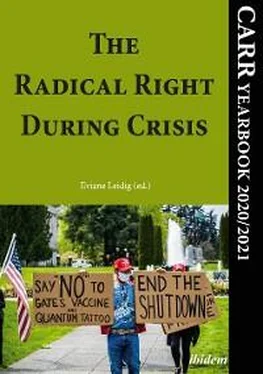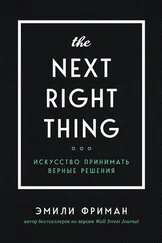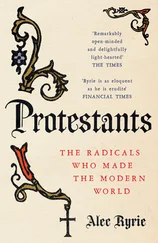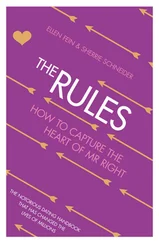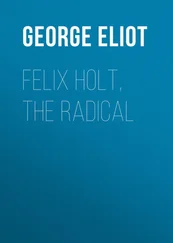Here’s the thing: the social “mainstream” is a far, far broader patchwork canopy than liberal and/or progressive opinion can comfortably profess. Mainstream acceptability is delineated by widely shared thresholds of acceptability on either side. Like taboos, these thresholds entail particular attitudinal and behavioural jumps that mark the boundaries of political legitimacy and “truth”. It is against these categorical extremes, Uwe Backes argued, that any “majority society” reflects its supposed normality. 13Yet, relative silence or lack of voting majorities is not sufficient assurance of robust adherence to the mainstream, let alone of positive or moderate approval for its lofty normative declarations. Supported by rooted and robust Foucauldian “regimes of truth”, as argued above, normative mainstream discourses are powerful enough projections to effectively conceal opposition and drown out public expressions of resentment. Whether, however, relative silence can be taken as tacit or passive approval is another matter.
To take a recent example, polls conducted during the Black Lives Matter mobilisation in the US in 2020 have encouragingly revealed significant increases in public support against institutionalised racism. 14Yet, they also typically show ongoing opposition to taking down symbols of the country’s imperialist and segregationist past. Supporting anti-racism when asked does not mean actively opposing racism. 15Protests, especially when they turn violent, can be divisive, pitting ideological support against the (always powerful) “law-and-order” agenda. To declare support for racism publicly remains a very strong taboo; but to invoke “public order” 16or national identity as under threat by such protests is also a powerful existential tool that adds that all-important conditional “but” to potential declarations of support for a cause.
The search for a political “mainstream” is messy, often self-contradictory, fickle, and difficult to access in sufficiently high resolution. It is more reflective of a continuum of more or less acceptable views than of a stable positive majority. For a politician or movement to claim unique and/or privileged access on the supposed “real” mainstream’s behalf is duplicitous hyperbole. But to trust either election results or opinion polls as the more accurate trace of “mainstream” pulse is to put just a bit too much faith on the question asked as well as on the validity of the answers publicly given. The populist claim to give voice to silent majorities is more akin to a call for public insurrection by supposed underdogs against certain existing social and political taboos– and a promise of long-overdue redress. 17Seen from this perspective, it may be easier to comprehend why the populist trope has worked to shock electoral effect too often in recent years; and why it is a mistake to simply brush it aside as a misnomer or as a loud, manipulative social media fad. It is also just a bit closer to an uncomfortable truth that we may wish to admit and act upon: the “mainstream” as a bundle of diverse social majorities (or in electoral parlance, “voting coalitions”) is generally less progressive and more erratic than often assumed. 18Populists may not be supported by “silent majorities”, but their transgressive arguments speak to, legitimise, and then normalise a number of “subjugated knowledges” that have the power to transform the complexion of the “mainstream”. 19
Dr Aristotle Kallisis a Senior Fellow at CARR and professor of modern and contemporary history at Keele University.
1“Recent Polls on Immigration, Public Opinion & Voting: MW 361”, Migration Watch UK, last modified April 7, 2016, https://www.migrationwatchuk.org/briefing-paper/361/recent-polls-on-immigration
2Aristotle Kallis, “When Fascism Became Mainstream: The Challenge of Extremism in Times of Crisis”, Fascism 4 no. 1 (2015): 1–24.
3Roch Dunin-Wasowicz, “Long read | Are opinion polls biased towards Leave?”, LSE Blogs, October 29, 2019, https://blogs.lse.ac.uk/brexit/2019/10/29/long-read-are-opinion-polls-pro-leave-biased/
4Lars Rensmann, “The Noisy Counter-Revolution: Understanding the Cultural Conditions and Dynamics of Populist Politics in Europe in the Digital Age”, Politics and Governance 5 no. 4 (2017): 123-35.
5Daniele Lorenzini, “What is a ‘Regime of Truth’?”, Le Foucaldien 1 no. 1 (2015), 1.
6Sarah Thelen, “Mobilizing a Majority: Nixon's ‘Silent Majority’ Speech and the Domestic Debate over Vietnam”, Journal of American Studies 51 no. 3 (2017): 887–914.
7Jerald Podair, Zach Messitte and Charles Holden, “The Man Who Pioneered Trumpism”, Washington Post , November 15, 2018, https://www.washingtonpost.com/outlook/2018/11/15/man-who-pioneered-trumpism/.
8John Keane, “We the People: The Charms and Contradictions of Populism”, The Conversation , November 2, 2016, https://theconversation.com/we-the-people-the-charms-and-contradictions-of-populism-63769.
9Desirée Schmuck and Michael Hameleers, “Closer to the People: A Comparative Content Analysis of Populist Communication on Social Networking Sites in Pre- and Post-Election Periods”, Information, Communication & Society 23 no. 10 (2020): 1531-48.
10Mark Mardell, “The Netherlands’ Populist Moment?”, BBC News , February 13, 2017, https://www.bbc.co.uk/news/world-europe-38956740; Megan Galbreath, “An Analysis of Donald Trump and Marine Le Pen”, Harvard International Review 38 no. 3 (2017): 7-9.
11Harry Enten, “Silent Majorities Are a Misnomer”, CNN , June 6, 2020, https://edition.cnn.com/2020/06/06/politics/trump-silent-majority-analysis/index.html.
12Cas Mudde, “Populists Aren’t a Silent Majority—They’re Just a Loud Minority”, Guardian , September 6, 2018, https://www.theguardian.com/commentisfree/2018/sep/06/populists-silent-majority-loud-minority.
13Uwe Backes, “Meaning and Forms of Political Extremism in Past and Present”, Central European Political Studies Review IX no. 4 (2007): 242-62.
14“Poll Shows Strong Public Support for BLM Protests”, Hope not Hate, June 26, 2020, https://www.hopenothate.org.uk/2020/06/26/poll-shows-strong-public-support-for-blm-protests/.
15David Smith, “Nine Out of 10 Americans Say Racism and Police Brutality Are Problems, Poll Finds”, Guardian , July 8, 2020, https://www.theguardian.com/us-news/2020/jul/08/americans-racism-police-brutality-problems-poll.
16Charles M Blow, “‘Law and Order’ for ‘Blacks and Hippies’”, New York Times , June 21, 2020, https://www.nytimes.com/2020/06/21/opinion/trump-police-reform.html.
17Ruth Wodak, The Politics of Fear: What Right-Wing Populist Discourses Mean (London: SAGE, 2015), Ch. 1.
18Francesco Duina, “The Uncomfortable Truths About Populism”, LSE Blogs , June 5, 2020, https://blogs.lse.ac.uk/europpblog/2020/06/05/the-uncomfortable-truths-about-populism/.
19Julian Göpffarth, “Why We Shouldn’t Call the Far Right an Unpopular Minority”, Fair Observer , September 14, 2018, https://www.fairobserver.com/region/europe/far-right-populist-parties-sweden-democrats-afd-europe-politics-news-analysis-19001/.
How Fascists Have Used Panics to Consolidate Power
Roland Clark
Sometimes it is okay to panic. Or at least, some situations demand radical solutions. But when you are up to your eyeballs in judgement against your neighbour for hoarding toilet paper or the government for jeopardising your children’s future to sell another barrel of oil, keep in mind that, in interwar Europe at least, fascist politics emerged out of a climate of panic and constant talk of crises. Benito Mussolini rode to power on the claim that anarchist and communist violence was out of the government’s control. The massacres of the White Terror in Hungary relied on fears that communists and Jews posed a genuine threat to law and order. Adolf Hitler staged the famous Beer Hall Putsch in the midst of a state of emergency in Bavaria, then used the Reichstag fire of 1933 to end civil liberties and suppress his enemies. Oswald Mosley launched the British Union of Fascists with one speech after another about the dire circumstances British workers found themselves in at the end of the Great Depression. Engelbert Dollfuss shut down Austria’s government in 1933 by over-exaggerating a political stalemate that gave him an excuse to attack the Social Democratic Party and launch the Austrian Civil War. Cries about judicial corruption in the case of the embezzler Alexandre Stavisky brought the right-wing Leagues out onto the streets of Paris in February 1934, bringing down Édouard Daladier’s government and almost resulting in a coup d’état.
Читать дальше
